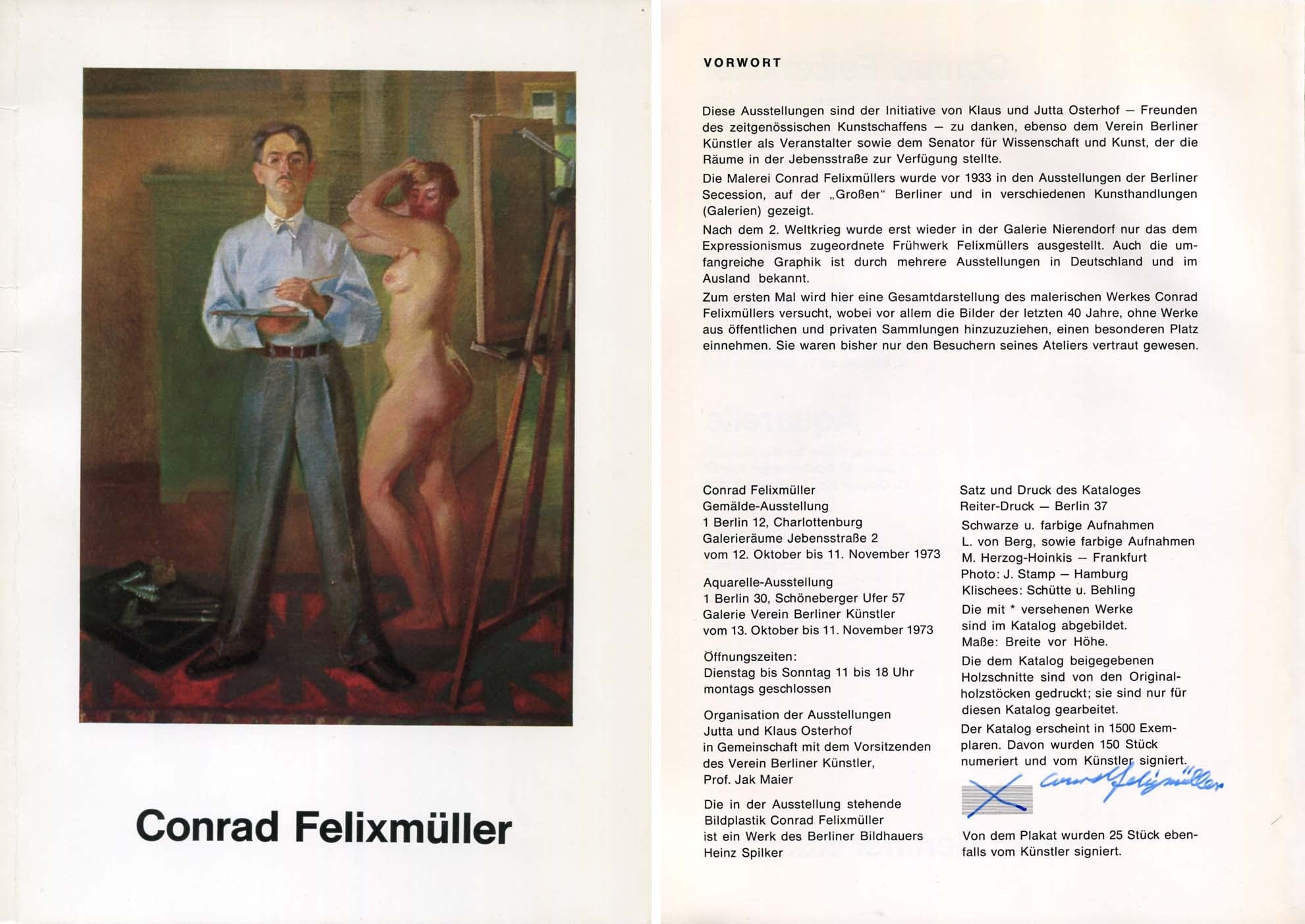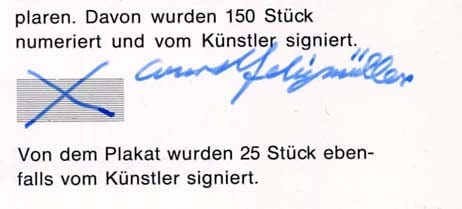Beschreibung
Weitere Infos zur Person
Profession:
(1897-1977) German expressionist painter and printmaker. Born in Dresden as Conrad Felix Müller, he chose Felixmüller as his nom d'artiste.
Year of Birth: 1897
Conrad Felixmüller was a German expressionist painter, printmaker, and illustrator who was active during the Weimar Republic. He was born on April 8th, 1897 in Dresden, Germany. He was the son of the painter Hermann Felixmüller and his wife Anna, who had both come from working class backgrounds. Conrad grew up in a poor family and had to help his father with his painting and drawing at an early age. He began studying at the Dresden Academy of Fine Arts in 1913 and was heavily influenced by the avant-garde art movements of the era, such as Expressionism and Cubism.
In 1916, Conrad was conscripted into the German army during World War I and was sent to the Eastern Front. After the war, he returned to Dresden in 1919 and resumed his studies at the academy. He also joined the November Group, an association of left-wing expressionist artists, and began to gain recognition for his work. His work was often characterized by its bold use of color, distorted figures, and social commentary. He was also known for his illustrations of proletarian life and was considered an important chronicler of the Weimar Republic.
In the early 1920s, Conrad married Anna Koppe and the couple had three children. In 1923, he was invited to take part in the first International Dada Fair in Berlin. His work was featured alongside other important Expressionist artists such as Otto Dix and George Grosz. In 1926, he had his first solo exhibition in Berlin and was soon exhibiting his work throughout Germany and abroad.
In 1933, with the rise of the Nazi party in Germany, Conrad and his family fled to Denmark. He continued to paint and exhibit his work, but his style shifted to a more realistic approach. After the war, he returned to Germany and was appointed professor at the Academy of Fine Arts in Berlin in 1950. In the 1950s and 1960s, he returned to his Expressionist style and created works inspired by his experiences during the war.
In his later years, Conrad continued to paint and exhibit his work in Germany and abroad. He was honored with numerous awards and his work has been widely exhibited. He died in Berlin on November 25th, 1977. He is remembered as one of the most important German Expressionist painters of the 20th century and his works are highly sought after by collectors.
Conrad Felixmüller's art was greatly influenced by the tumultuous period in which he lived. His bold use of color, distorted figures, and social commentary created an expressive and powerful body of work that continues to captivate viewers to this day.
Echtheitszertifikat
Zahlung & Sicherheit
Deine Zahlungsinformationen werden sicher verarbeitet. Wir speichern keine Kreditkartendaten und haben auch keinen Zugang zu deinen Kreditkartendaten.


